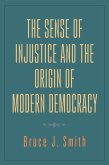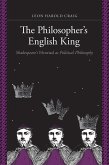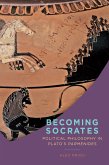A thorough examination of Benjamin Franklin's works on philosophy and politics, arguing that Franklin was a philosopher of natural right
Benjamin Franklin's writings on politics are voluminous, and his own politics are well known, yet scholars debate -- often fiercely -- whether he had a political philosophy and, if so, what it was. Benjamin Franklin, Natural Right, and the Art of Virtue is a study of Franklin's political and philosophical writings, tracing the development of his political thought and elucidating the political philosophy he came to embrace and put into practice.
Kevin Slack argues that Franklin, despite his reputation as a wit and clever politician, examined the nature of politics, virtue, and morality more deeply than any scholar has given him credit for. Franklin, as Slack demonstrates, rejected metaphysics during a period of youthful skepticism, adopting radical skepticism, but later abandoned that view for a third alternative, Shaftesbury's common-sense philosophy. Engaging in a rigorous critique of religious and political authorities, Franklin rejected all authoritative claims but that of reason, which he used to investigate the nature of justice, or natural right. Slack shows here that Franklin was a thinker in the traditionof Socrates, and thus a political philosopher in the truest and highest sense.
Kevin Slack is assistant professor of politics at Hillsdale College.
Benjamin Franklin's writings on politics are voluminous, and his own politics are well known, yet scholars debate -- often fiercely -- whether he had a political philosophy and, if so, what it was. Benjamin Franklin, Natural Right, and the Art of Virtue is a study of Franklin's political and philosophical writings, tracing the development of his political thought and elucidating the political philosophy he came to embrace and put into practice.
Kevin Slack argues that Franklin, despite his reputation as a wit and clever politician, examined the nature of politics, virtue, and morality more deeply than any scholar has given him credit for. Franklin, as Slack demonstrates, rejected metaphysics during a period of youthful skepticism, adopting radical skepticism, but later abandoned that view for a third alternative, Shaftesbury's common-sense philosophy. Engaging in a rigorous critique of religious and political authorities, Franklin rejected all authoritative claims but that of reason, which he used to investigate the nature of justice, or natural right. Slack shows here that Franklin was a thinker in the traditionof Socrates, and thus a political philosopher in the truest and highest sense.
Kevin Slack is assistant professor of politics at Hillsdale College.
Dieser Download kann aus rechtlichen Gründen nur mit Rechnungsadresse in A, D ausgeliefert werden.









